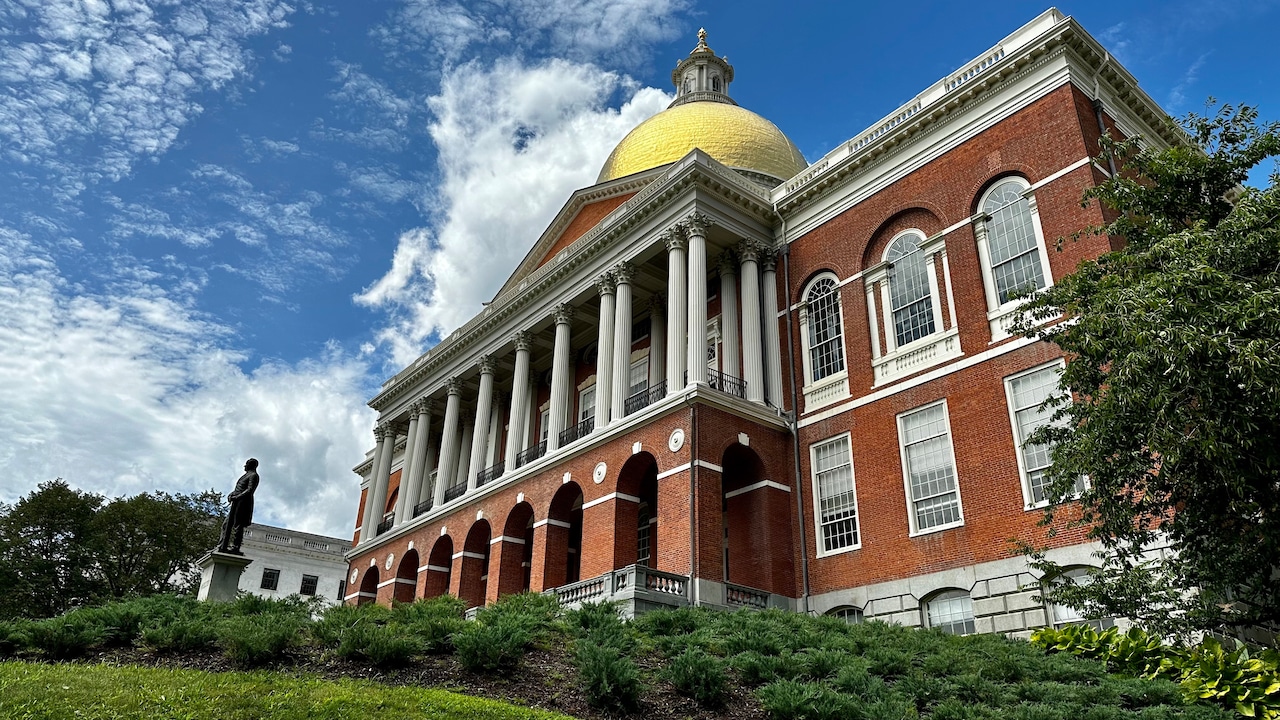
With the new year comes new laws that are set to take effect in Massachusetts in 2025.
Five bills were signed into law with set dates for when the new laws, signed by Gov. Maura Healey, go into effect.
Four other new laws were part of a large economic development bill Healey signed in November, covering a wide range of issues from clean energy to education. The text of this law contained an emergency preamble, which gives the governor authority to determine whether a new law should go into effect immediately.
Here are the latest changes made to Massachusetts state law.
Employers must show salary ranges in job postings
Beginning Oct. 29, 2025, Massachusetts employers with 25 or more employees must disclose salary ranges and protect an employee’s right to ask for salary ranges. This received Healey’s approval on July 31 when Healey signed the Francis Perkins Workplace Equity Act, named after the first woman to be Secretary of Labor under President Franklin Roosevelt.
The new law also prohibits employers from firing or retaliating against any employee or applicant who asks for salary ranges when applying for a job or promotion, according to state law.
Employers’ demographic wage data
Along with salary ranges, Massachusetts employers with at least 100 state-based employees must file an annual report to the state, according to the legal firm Cooley. This annual report includes workforce demographic and pay data categorized by race, ethnicity, sex, and position.
This goes into effect on Feb. 1, 2025, with the Executive Office of Labor and Workforce Development then publishing aggregated data in a report on its website on July 1 of each year.
Massachusetts joins 11 other states in enacting this law: California, Colorado, Connecticut, Hawaii, Illinois, Maryland, Minnesota, Nevada, New York, Rhode Island and Washington.
Sealing eviction records
Healey signed the Affordable Homes Act on Aug. 6. Going into effect on May 5, 2025, this law allows tenants to petition the courts to seal certain eviction records that can make it difficult for renters to secure housing, according to the state’s website.
The law will also make it illegal for a consumer reporting agency to include a sealed eviction record in its reports.
Parentage equality expansions
In August, Healey signed into law an act that updates the state’s parentage laws for the first time in 40 years, according to the Governor’s Office. The Massachusetts Parentage Act provides protections for parents who use surrogacy, in-vitro fertilization and assisted reproduction, as well as for LGBTQ+ parents.
The bill also modernizes the law’s language to be more inclusive, replacing words like “paternity” for “parentage” and “child born out of wedlock” for “nonmarital child,” Healey’s office said.
“Our laws need to reflect the realities of modern families and the loving environments where children grow and flourish,” Healey said in an Aug. 9 statement. “This moment is a victory for all families in Massachusetts who deserve to be treated with dignity and to have their rights recognized and protected under the law.”
This law goes into effect on Jan. 1, 2025.
Updates to paid family and medical leave
On Oct. 1, the Department of Family and Medical Leave announced it would update weekly benefits for paid family and medical leave in Massachusetts. The maximum weekly benefits that employees can receive are set to increase from $1,149.90 to $1,170.64 per week, according to the legal firm Fisher Phillips.
The overall paid family and medical leave contribution rate will stay at 0.88% for eligible employees working at a business with 25 employees or more, the legal firm Seyfarth said in a statement. The contribution rate for smaller employers will remain at 0.46%.
Changes go into effect on Jan. 1, 2025.
Economic development for climate tech, AI and natural gas
Healey signed an economic development bill called the Mass Leads Act on Nov. 20. Its goal is to promote the development and use of clean energy across the state, with improvements to energy affordability, expand access to electric vehicles, and “facilitate the application of artificial intelligence across the state’s ecosystem‚“ Healey’s office said in a statement.
“This legislation will create new jobs, strengthen our efforts to recruit and retain the best talent, support all of our communities, and grow our arts, culture and tourism sectors,” the administration said in its statement.
The new law supports initiatives that aim to make Massachusetts a hub for climate technology, Healey’s office said. This includes $400 million in capital resources going to the offshore wind industry and establishing a new climate tech incentive program to bring and keep climate tech companies in Massachusetts. It will also update the existing Offshore Wind Tax Incentive Program.
The sweeping bill also includes provisions to overhaul the state’s permitting process for Massachusetts to build more renewable energy infrastructure to meet its climate goals. WBUR reported that these changes are intended to go into effect by March 2026.
The law also authorizes $100 million to be used to create the Massachusetts AI Hub “to facilitate the application of artificial intelligence across the state’s ecosystem,” the statement read. Healey’s office added that this hub is expected to boost innovation and “attract AI talent” to the state.
Additionally (but not lastly), the law establishes new provisions for natural gas. More networked geothermal projects, like Eversource in Framingham, will be built in order to bring cleaner forms of heating and cooling, WBUR reported.
The law also changes how gas utilities are incentivized to replace leaky underground pipes, with the state now prioritizing short-term repairs or retiring segments of a pipeline.
Due to the emergency preamble written into the Mass Leads Act, the law immediately went into effect with Healey’s signature.
More funding for electric vehicle incentives
The Mass Leads Act also introduced new provisions for electric vehicles, including an extension of state funding for its electric vehicle incentive program until 2027, WBUR wrote.
The Massachusetts Offers Rebates for Electric Vehicles, or MOR-EV, program is intended to cut down on air pollution and greenhouse gases.
The program offers rebates for buying or leasing eligible battery electric vehicles and fuel-cell electric vehicles.
Another provision includes directing the Office of Energy and Environmental Affairs to review laws that ban the sale of new gasoline or diesel-powered vehicles after 2035, WBUR reported.
As part of the Mass Leads Act, these parts of the law also immediately went into effect upon the bill’s signing.
Nurses can work across state lines
The passage of the Mass Leads Act also addressed the nursing shortage in Massachusetts. The bill included a measure to join the Nurse Licensure Compact, which allows nurses operating in other states affiliated with the compact to practice out of state via in-person or telehealth, GBH reported in November.
Massachusetts became the last New England state to join the compact.
“Compact membership will also enhance the ability of the Massachusetts health care system to prepare for pandemics, emergencies and other staffing needs and to facilitate telehealth and other care delivery transformations in the future,” Mickey O’Neill, spokesperson for the Massachusetts Health Policy Commission, told GBH.
This also went into effect immediately after Healey signed the Mass Leads Act.
Educator diversity
Another facet of the economic development bill that Healey signed focused on education. The new law incorporated a bill known as the Massachusetts Teachers Association-supported Educator Diversity Act.
This change will see the Department of Elementary and Secondary Education develop an alternative certification process for teachers who may have challenges with the educator certification exam, but can still demonstrate their capabilities as teachers, Massachusetts Senate President Karen Spilka said in a statement in November.
Because educator diversity was part of the Mass Leads Act, it immediately went into effect with Healey’s signature on Nov. 20.





